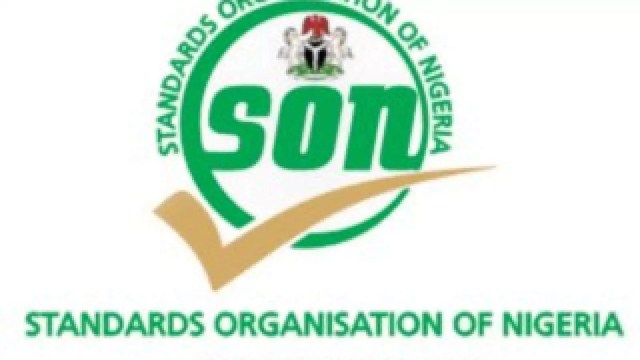The Standards Organisation of Nigeria (SON), says importation of substandard goods poses danger to standard of living and also affects national development negatively.
Malam Farouk Salim, made this known at a stakeholders’ meeting held on Thursday in Lagos, with the theme; “Standards Save Lives Grow Economy”.
He added that importation of substandard goods could destroy the economy of any country.
According to him, the essence of the sensitisation with stakeholders is to communicate and share views on how to make businesses more efficient.
He also noted that it was unfortunate that no one was tracking importers of substandard goods.
“Stakeholders should engage in bringing in genuine quality products into the country. As substandard goods continue to come into the country, the local manufacturers and industries will be destroyed.
“In other climes, when you buy a product and sell it to the public and someone is injured or they don’t get satisfaction to the product, you will be sued and then money is lost or sometimes jail.
“In Nigeria, we have it develop to that level. We have the laws but we have not develop to the level where some gets punished,” he said.
Also, Dr Kayode Farinto, Vice President, Association of Nigeria Licensed Customs Agents (ANLCA), called for the rerun of SON to the ports.
According to him, the return of SON to the ports will ensure the war against substandard goods in the country is achieved.
Farinto, speaking on ‘Juxtaposing Substandard Imports, SON’s Absence at Seaport’, said that if the trend was not arrested urgently by providing solution, it could negatively affect the economy and dwindle the nation’s income.
“SON vacated the seaport few years ago and was doing its regulatory role outside the port.
“But unfortunately, some nonconformist who import sub-standard goods has shown that there was need to reverse the Executive Order.
“This will ensure the country wins the war against importation of sub-standard goods in the country,” he said.
Farinto urged freight forwarders, licensed customs brokers to shun dishonesty in its declaration, concealment, inaccurate description of imports and exports and others.
He said that if all these impediments were done away with, it would enable the country achieve ease of doing business.
Also, Mr Tochukwu Ezisi, President, National Association of Government Approved Freight Forwarders (NAGAFF), urged SON to always liase with stakeholders in their operations.
Ezisi, represented by his Chief of Staff, Rev. Emma Agunbaze, said that engagement with stakeholders was key to improving accountability within the organisation as well as external audiences.
The Federal Government in 2011 reduced the number of government agencies that were allowed to participate in cargo clearance at the seaports from 14 to 7.












